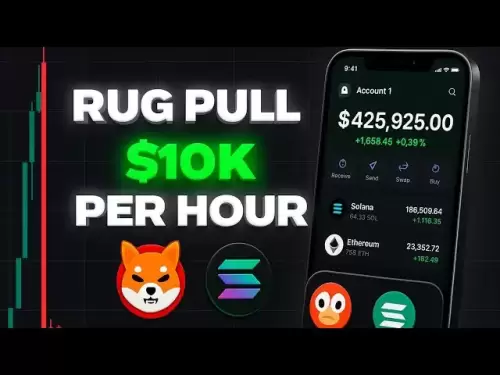-
 Bitcoin
Bitcoin $118400
0.47% -
 Ethereum
Ethereum $3836
2.20% -
 XRP
XRP $3.157
2.98% -
 Tether USDt
Tether USDt $0.9999
-0.03% -
 BNB
BNB $801.5
1.31% -
 Solana
Solana $180.9
2.07% -
 USDC
USDC $0.9999
-0.02% -
 Dogecoin
Dogecoin $0.2225
2.50% -
 TRON
TRON $0.3285
-1.02% -
 Cardano
Cardano $0.7789
2.60% -
 Hyperliquid
Hyperliquid $43.60
2.39% -
 Sui
Sui $3.892
4.41% -
 Stellar
Stellar $0.4229
3.34% -
 Chainlink
Chainlink $18.01
3.98% -
 Hedera
Hedera $0.2745
6.77% -
 Bitcoin Cash
Bitcoin Cash $582.3
3.38% -
 Avalanche
Avalanche $23.77
1.04% -
 Ethena USDe
Ethena USDe $1.001
0.01% -
 Toncoin
Toncoin $3.493
3.59% -
 Litecoin
Litecoin $110.0
2.48% -
 UNUS SED LEO
UNUS SED LEO $8.936
-0.37% -
 Shiba Inu
Shiba Inu $0.00001304
2.49% -
 Uniswap
Uniswap $9.999
1.09% -
 Polkadot
Polkadot $3.897
3.26% -
 Monero
Monero $308.6
-0.83% -
 Dai
Dai $0.9999
-0.01% -
 Bitget Token
Bitget Token $4.504
-0.04% -
 Pepe
Pepe $0.00001154
2.95% -
 Cronos
Cronos $0.1471
3.06% -
 Ethena
Ethena $0.6691
19.53%
How to deal with the failure of the Exodus wallet transaction? Is the handling fee set too low?
To handle a failed transaction in Exodus wallet due to low fees, increase the fee via 'Replace by Fee' or use third-party services like ViaBTC to accelerate it.
May 16, 2025 at 06:00 am
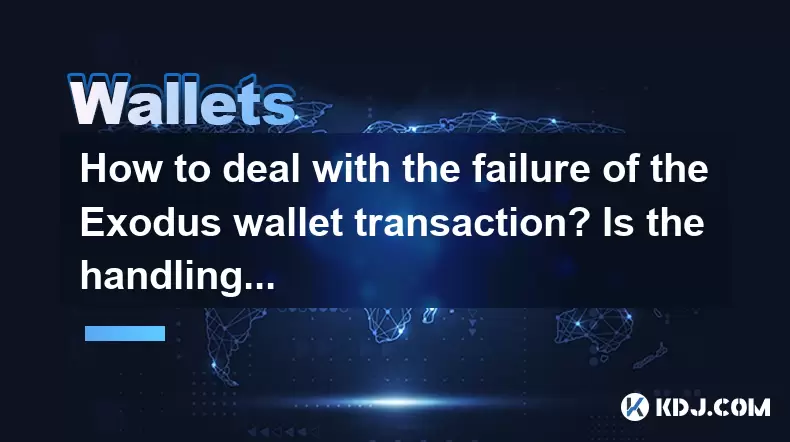
Dealing with a failed transaction in the Exodus wallet can be a frustrating experience, but understanding the reasons behind the failure and knowing how to address them can help you resolve the issue efficiently. One common reason for transaction failures is setting the handling fee too low. In this article, we will explore how to handle a failed transaction in the Exodus wallet, focusing on the issue of low handling fees and providing detailed steps to rectify the situation.
Understanding Transaction Failures in Exodus Wallet
Transaction failures in the Exodus wallet can occur for various reasons, but one of the most common is setting the handling fee too low. The handling fee, also known as the transaction fee, is the amount of cryptocurrency you pay to the network to process your transaction. If the fee is set too low, the transaction may not be processed quickly or at all, leading to a failed transaction.
Identifying a Failed Transaction
To begin addressing a failed transaction, you first need to identify it. In the Exodus wallet, you can do this by:
- Opening the Exodus wallet and navigating to the Transactions tab.
- Looking for transactions marked with a red status or labeled as 'Failed'.
- Noting the transaction ID (TXID) for further investigation.
Checking the Handling Fee
Once you have identified the failed transaction, the next step is to check the handling fee that was set. You can do this by:
- Selecting the failed transaction in the Transactions tab.
- Reviewing the transaction details, where you will find the fee amount that was set for the transaction.
If the fee appears to be significantly lower than the current network average, it is likely that the low fee caused the transaction to fail.
Increasing the Handling Fee
To resolve a failed transaction due to a low handling fee, you will need to increase the fee. This process is known as transaction acceleration or fee bumping. Here are the steps to increase the handling fee in the Exodus wallet:
- Open the Exodus wallet and go to the Transactions tab.
- Find the failed transaction and select it to view the details.
- Click on the 'Replace by Fee' option if available. This feature allows you to increase the fee on an unconfirmed transaction.
- Enter a higher fee that aligns with the current network average or slightly above it.
- Confirm the new fee and broadcast the transaction again.
If the 'Replace by Fee' option is not available, you may need to wait for the transaction to be dropped from the mempool or use a third-party service to accelerate the transaction.
Using Third-Party Services for Transaction Acceleration
If the 'Replace by Fee' option is not available in the Exodus wallet, you can use third-party services to accelerate your transaction. Here are the steps to do so:
- Visit a transaction acceleration service such as ViaBTC or BTC.com.
- Enter the transaction ID (TXID) of the failed transaction.
- Select the desired acceleration speed and review the fee required for acceleration.
- Pay the acceleration fee using the cryptocurrency specified by the service.
- Confirm the acceleration request and wait for the transaction to be processed.
Monitoring the Transaction Status
After increasing the handling fee or using a third-party service, it is important to monitor the transaction status to ensure it is processed successfully. You can do this by:
- Returning to the Exodus wallet and checking the Transactions tab regularly.
- Looking for a change in the transaction status from 'Failed' to 'Pending' or 'Confirmed'.
- Using a blockchain explorer to track the transaction using the TXID.
Preventing Future Transaction Failures
To avoid future transaction failures due to low handling fees, consider the following best practices:
- Stay informed about current network fees by using tools like Mempool.space or BitcoinFees.earn.com.
- Set fees slightly above the average to ensure your transactions are processed quickly.
- Regularly update the Exodus wallet to ensure you have access to the latest features and improvements.
Frequently Asked Questions
Q: Can I recover the cryptocurrency from a failed transaction?
A: If a transaction fails due to a low handling fee, the cryptocurrency is not lost. You can increase the fee to resubmit the transaction or wait for it to be dropped from the mempool and then resend it.
Q: How long does it take for a transaction to be dropped from the mempool?
A: The time it takes for a transaction to be dropped from the mempool can vary depending on the network congestion and the fee set. It can take anywhere from a few hours to several days.
Q: Are there any risks associated with using third-party transaction acceleration services?
A: While third-party services can be effective, there is a risk of overpaying for acceleration fees. Always research the service and understand the fees before using them.
Q: Can I use the 'Replace by Fee' feature for all cryptocurrencies in the Exodus wallet?
A: The 'Replace by Fee' feature is not available for all cryptocurrencies in the Exodus wallet. It is primarily used for Bitcoin and some other cryptocurrencies that support this feature. Always check the specific cryptocurrency's support for this feature before attempting to use it.
Disclaimer:info@kdj.com
The information provided is not trading advice. kdj.com does not assume any responsibility for any investments made based on the information provided in this article. Cryptocurrencies are highly volatile and it is highly recommended that you invest with caution after thorough research!
If you believe that the content used on this website infringes your copyright, please contact us immediately (info@kdj.com) and we will delete it promptly.
- Pudgy Penguins Price Prediction: Buying Opportunity or Insider Dump?
- 2025-07-31 18:50:35
- Penny Coin Power: Unearthing 20x Potential in Undervalued Crypto
- 2025-07-31 20:10:14
- Shrapnel, GalaChain, and China Gaming: A New Frontier
- 2025-07-31 19:10:35
- Mutuum Finance, Bitcoin, and Market Analysis: Decoding the Latest Trends
- 2025-07-31 19:30:13
- Dogecoin Howl: Bullish Signals and Analyst Bites – Is the Meme Coin Ready to Pounce?
- 2025-07-31 18:30:16
- Decoding Crypto Presales, Ethereum's Role, and Navigating a Tricky Altcoin Season
- 2025-07-31 18:30:16
Related knowledge
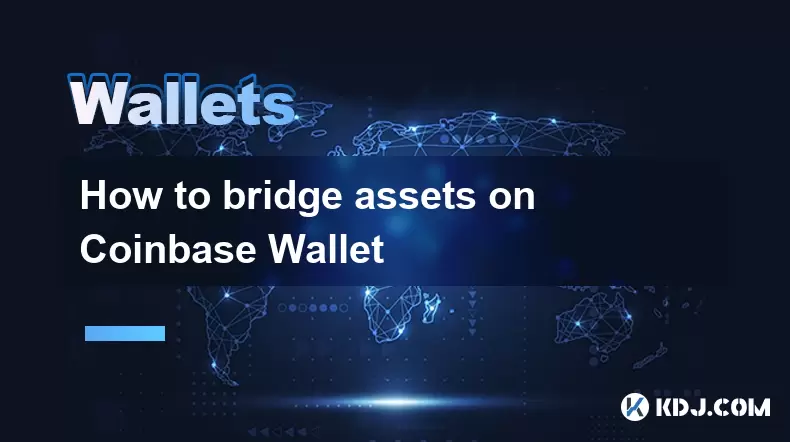
How to bridge assets on Coinbase Wallet
Jul 27,2025 at 01:14am
What Is Asset Bridging in the Context of Coinbase Wallet?Bridging assets refers to the process of transferring tokens from one blockchain network to a...
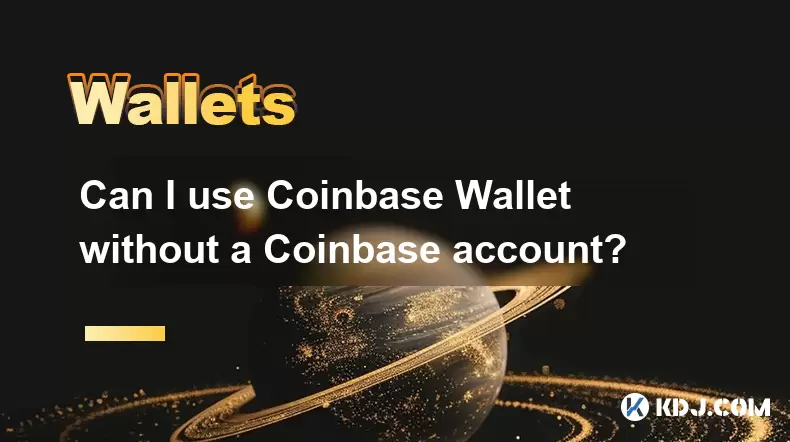
Can I use Coinbase Wallet without a Coinbase account?
Jul 18,2025 at 04:35am
What is Coinbase Wallet?Coinbase Wallet is a self-custodial wallet that allows users to store, send, and receive various cryptocurrencies directly on ...
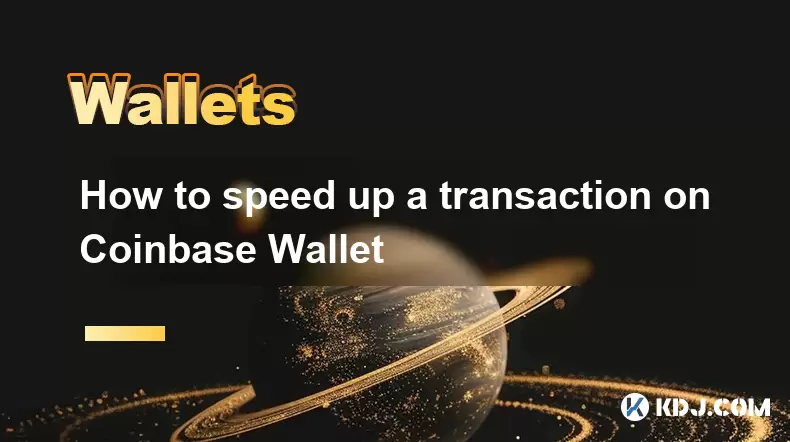
How to speed up a transaction on Coinbase Wallet
Jul 27,2025 at 07:14am
Understanding Transaction Speed on Coinbase WalletWhen using Coinbase Wallet, users may occasionally encounter delays in transaction confirmations. Th...
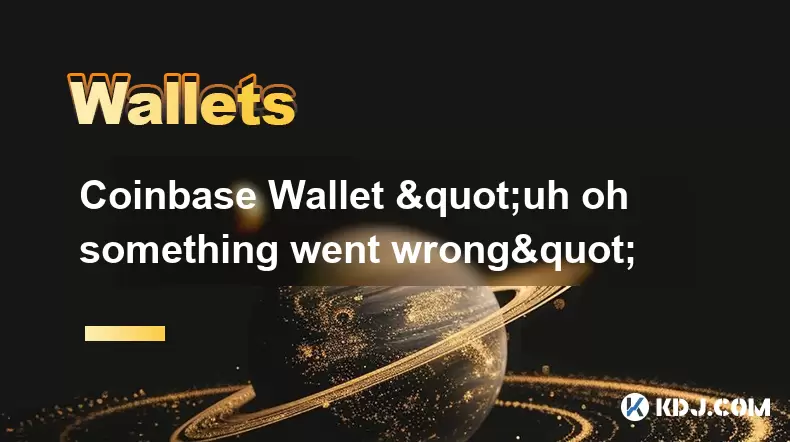
Coinbase Wallet "uh oh something went wrong"
Jul 20,2025 at 10:00am
Understanding the Coinbase Wallet Error: 'Uh Oh, Something Went Wrong'If you're a Coinbase Wallet user, encountering the error message 'Uh Oh, Somethi...
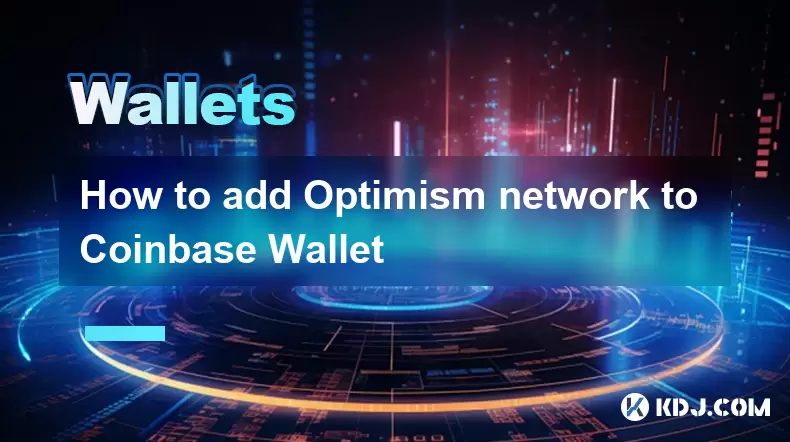
How to add Optimism network to Coinbase Wallet
Jul 20,2025 at 05:21am
What is the Optimism Network?The Optimism network is a Layer 2 scaling solution built on top of the Ethereum blockchain. It aims to enhance transactio...
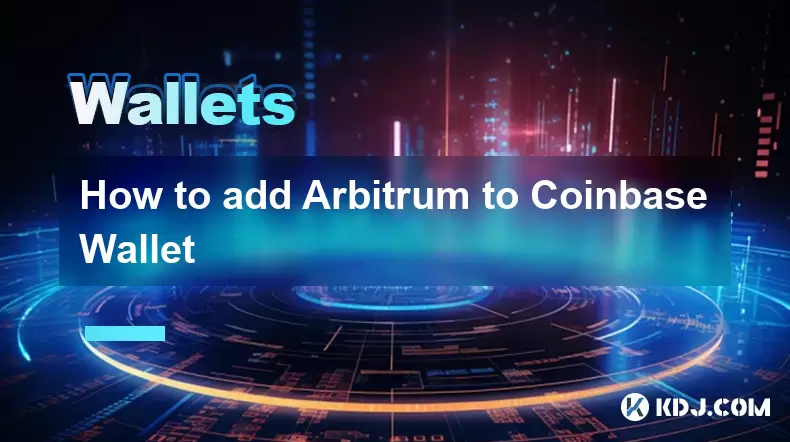
How to add Arbitrum to Coinbase Wallet
Jul 18,2025 at 03:00pm
Understanding Arbitrum and Its Integration with Coinbase WalletArbitrum is a layer-2 scaling solution developed by Offchain Labs to enhance the speed ...

How to bridge assets on Coinbase Wallet
Jul 27,2025 at 01:14am
What Is Asset Bridging in the Context of Coinbase Wallet?Bridging assets refers to the process of transferring tokens from one blockchain network to a...

Can I use Coinbase Wallet without a Coinbase account?
Jul 18,2025 at 04:35am
What is Coinbase Wallet?Coinbase Wallet is a self-custodial wallet that allows users to store, send, and receive various cryptocurrencies directly on ...

How to speed up a transaction on Coinbase Wallet
Jul 27,2025 at 07:14am
Understanding Transaction Speed on Coinbase WalletWhen using Coinbase Wallet, users may occasionally encounter delays in transaction confirmations. Th...

Coinbase Wallet "uh oh something went wrong"
Jul 20,2025 at 10:00am
Understanding the Coinbase Wallet Error: 'Uh Oh, Something Went Wrong'If you're a Coinbase Wallet user, encountering the error message 'Uh Oh, Somethi...

How to add Optimism network to Coinbase Wallet
Jul 20,2025 at 05:21am
What is the Optimism Network?The Optimism network is a Layer 2 scaling solution built on top of the Ethereum blockchain. It aims to enhance transactio...

How to add Arbitrum to Coinbase Wallet
Jul 18,2025 at 03:00pm
Understanding Arbitrum and Its Integration with Coinbase WalletArbitrum is a layer-2 scaling solution developed by Offchain Labs to enhance the speed ...
See all articles























